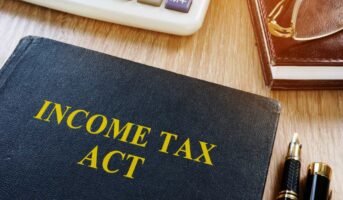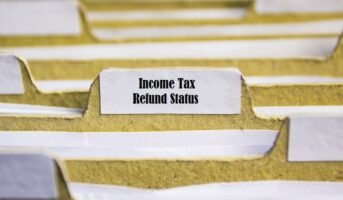Trading gains realised throughout the course of a single trading day are subject to taxation at the ordinary rate since they are considered speculative gains. The Income Tax Act of 1961 has a provision addressing speculation in section 43(5). It defines a speculative transaction as one in which the buyer and seller do not exchange the physical commodity or scrip at the time of the transaction. Trading shares intraday does not include delivery since the shares enter and leave the trading account on the same day and do not enter the Demat account at all.
While a “speculative transaction” is specified under the income tax rule, speculative income is not. Therefore, it is reasonable to call any gains made through gambling on the outcome of an event to be gambling gains. Purchases and sales of commodities, including stocks and shares, that are paid in a manner other than physical delivery or transfer of the commodity or scrip are considered speculative transactions under Section 43(5) of the Income Tax Act. Here’s all the information you need to know about speculative business income tax.
See also: 206ab of income tax act
What is speculative business income tax?
Speculative income is the income, which is based on a future event, and is not realised until it is earned. If the taxpayer has put the capital at risk, the income is considered as speculative. That is, the income earned from any business activity wherein a taxpayer has a significant risk of losing money is known as speculative income.
Who is required to pay speculative business income tax?
If a taxpayer engages in intraday trading, the transactions may be speculative in nature. Income tax on intraday trading profit is classified under this category.
How is speculative business income tax calculated?
According to Section 43(5) of the Income Tax Act of 1961, intra-day trading will be considered as speculative business transactions and the income derived from it is either speculation gains or speculation losses. Profits obtained from speculating are taxable at according to the income tax slab. There is no separate speculative income tax rate in India.
Speculative Business Income Tax: Exceptions
Hedging contract with respect to raw materials or merchandise
An entrepreneur in the manufacturing or merchandising industries may engage in a contract with regard to the raw materials and products he uses in his operations in order to protect himself and his firm against potential financial loss caused by future price changes. Thus, in this context, hedging a contract implies protecting products against potential loss, and the transaction is not speculative.
Hedging contract with respect to stocks and shares
Similar to the previous case, this one involves a person entering into a contract with his stocks and shares with the help of a dealer or an investor in order to safeguard himself against the risk of financial loss due to fluctuations in stock prices.
Forward contract
The primary function of the over-the-counter forward market where forward contracts are traded is to determine the future delivery price of a financial instrument or asset. In order to hedge against potential financial loss, a participant in a forward market (or stock exchange) may often engage in a forward contract as part of a jobbing or arbitrage transaction.
Trading in derivatives
Derivatives trading that is conducted electronically via authorised brokers meets the requirements of the applicable laws and regulations. A contract note with the transaction date and time and including the client’s identifier and PAN (Permanent Account Number), supports this exchange. Trading in derivatives is governed by the Securities Contracts (Regulation) Act of 1956 and takes place on approved stock exchanges.
Trading in commodity derivatives
Commodity derivatives trading in a recognised association that is subject to the commodities transaction tax described in Chapter VII of the Finance Act, 2013 constitutes an eligible transaction (as specified above).
Speculative transactions are to be seen as separate transactions. A taxpayer’s speculative company must be treated separately from any other companies he operates, even if the taxpayer operates many businesses at once.
See also: Section 54
Speculative Business Income Tax: Accounting for a loss in a speculative enterprise
Only earnings made through speculation may be deducted from speculation losses. For losses that cannot be deducted in the current year, the loss may be carried forward for up to four assessment years and used to reduce speculative income.
In addition, any sunk costs from investments in R&D related to a speculative business model should be offset before depreciation or capital expenditures.
Speculative Business Income Tax: Treatment of income or loss
Distinct business: If a taxpayer has many businesses and one of them is a speculative business, then that has to be treated as distinct and separate from all the other businesses that he has.
Loss from speculative business: Any loss that has been incurred from a distinct or speculative business can be set off only against speculative business profits. Note that it is not necessary to set-off the loss in that year. It can be carried forward for the next four assessment years. However, it can be set-off only against the speculative income.
FAQs
How do you treat income from speculation business?
Income earned through intraday trading of equities is a kind of speculative gain. Income from Futures and Options trading is a stable source of revenue for a company. Equity delivery trading profits may be taxed as either capital gains or commercial income. Traders who have realised capital gains must complete Form ITR-2.
What is turnover in the case of speculation business?
All speculative trades are to be counted as turnover if and only if the total positive and negative differences between trades are positive.
How do you treat speculative income for taxation?
A taxpayer's speculative company must be treated separately from any other companies he operates, even if the taxpayer operates many businesses at once.
| Got any questions or point of view on our article? We would love to hear from you. Write to our Editor-in-Chief Jhumur Ghosh at [email protected] |
Housing News Desk is the news desk of leading online real estate portal, Housing.com. Housing News Desk focuses on a variety of topics such as real estate laws, taxes, current news, property trends, home loans, rentals, décor, green homes, home improvement, etc. The main objective of the news desk, is to cover the real estate sector from the perspective of providing information that is useful to the end-user.
Facebook: https://www.facebook.com/housing.com/
Twitter: https://twitter.com/Housing
Email: [email protected]











